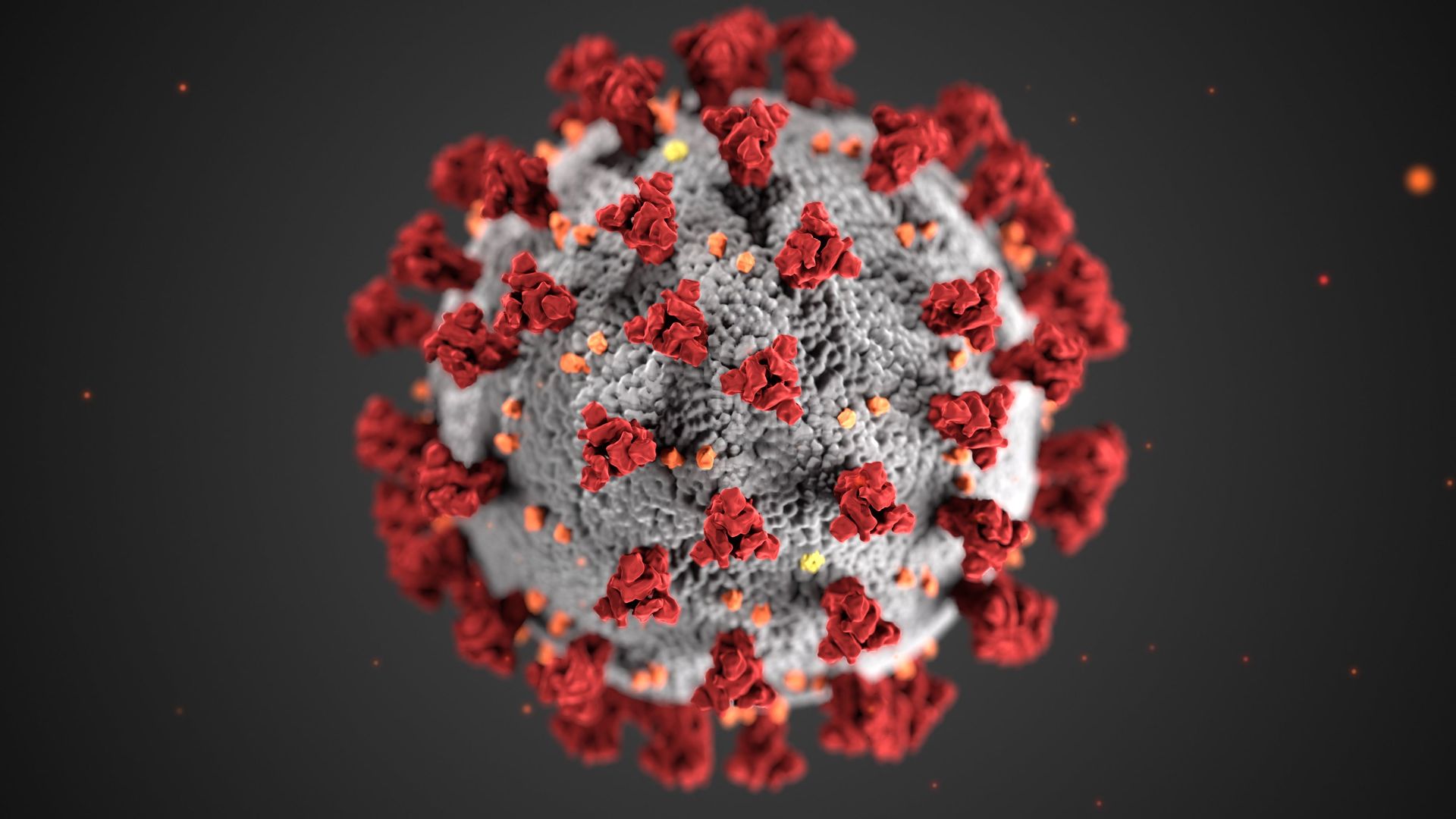
Introduction:
In our fast-paced and demanding world, stress has become a prevalent and often unavoidable part of life. Chronic stress can have detrimental effects on both physical and mental well-being, making it essential to explore holistic approaches for stress reduction. Naturopathy, a system of healthcare that focuses on natural healing methods, offers effective strategies to manage stress and promote overall balance. In this blog, we'll delve into six powerful ways through which naturopathy can help in reducing stress.
1. Mindfulness Meditation:
Mindfulness meditation is considered an effective way to reduce stress through naturopathy for several reasons, as it aligns with the holistic principles of naturopathic medicine. Here are key reasons why mindfulness meditation is valued in naturopathy for stress reduction:
- Activating the Relaxation Response:
- Mindfulness meditation is known to activate the body's relaxation response, counteracting the physiological effects of the stress response. By focusing attention on the present moment and cultivating awareness without judgment, individuals can induce a state of calmness and relaxation.
2. Cortisol Regulation:
- Chronic stress often leads to elevated levels of cortisol, the primary stress hormone. Mindfulness meditation has been shown to regulate cortisol production, helping to bring cortisol levels back to a more balanced range. This hormonal balance contributes to improved stress resilience and overall well-being.
3. Reducing the Impact of Negative Thoughts:
- Mindfulness meditation involves observing thoughts without becoming attached to them or reacting emotionally. This practice helps individuals break free from the cycle of negative thinking that often accompanies stress. By creating distance from stressful thoughts, mindfulness can reduce their impact on emotions.
4. Enhancing Emotional Regulation:
- Regular mindfulness practice is associated with improved emotional regulation. It helps individuals become more aware of their emotions, allowing for a non-reactive and measured response to challenging situations. This emotional resilience is a valuable asset in coping with stress.
5. Improving Concentration and Cognitive Function:
- Stress can impair cognitive function and concentration. Mindfulness meditation has been shown to enhance cognitive abilities, including attention and memory. By training the mind to focus on the present moment, individuals can better manage stressors without feeling overwhelmed.
6. Mind-Body Connection:
- Naturopathy emphasizes the interconnectedness of the mind and body. Mindfulness meditation fosters a stronger mind-body connection, promoting awareness of physical sensations and reactions to stress. This heightened awareness allows individuals to respond more effectively to stress signals from the body.
7. Enhancing Self-Awareness:
- Mindfulness meditation encourages self-reflection and self-awareness. By developing a deeper understanding of one's thoughts, emotions, and reactions to stress, individuals can identify and address the root causes of stress in their lives. This self-awareness is a foundational aspect of naturopathic approaches to holistic health.
8. Promoting Sleep Quality:
- Stress often interferes with sleep, creating a cycle of exhaustion and heightened stress levels. Mindfulness meditation has been shown to improve sleep quality by calming the mind and reducing anxiety. Better sleep contributes to overall resilience against stress.
2. Herbal Adaptogens:
Herbal adaptogens are considered effective in reducing stress through naturopathy for several reasons, each highlighting their unique properties and mechanisms of action. Naturopathy, which emphasizes natural and holistic approaches to healthcare, recognizes the potential of adaptogenic herbs to bring the body back into balance. Here's why herbal adaptogens are regarded as effective in stress reduction within the naturopathic framework:
- Modulation of the Stress Response:
- Adaptogens help regulate the body's stress response by influencing the hypothalamus-pituitary-adrenal (HPA) axis. They modulate the release of stress hormones, particularly cortisol, ensuring a balanced and adaptive response to stressors. This modulation helps prevent the negative impact of chronic stress on overall health.
2. Enhanced Resilience and Adaptability:
- The term "adaptogen" reflects the herbs' ability to enhance the body's resilience and adaptability to various stressors. These herbs support the body in maintaining equilibrium during stressful situations, promoting a more measured and less overwhelming response to stress.
3. Reduction of Fatigue and Improved Energy Levels:
- Chronic stress often leads to fatigue and depleted energy levels. Adaptogens such as Rhodiola and Ashwagandha have been shown to have anti-fatigue properties, helping to alleviate stress-induced exhaustion and promoting sustained energy levels.
4. Balancing Neurotransmitters:
- Some adaptogens influence neurotransmitter activity in the brain, promoting a balance in mood-regulating chemicals. For example, adaptogens like Rhodiola and Holy Basil may have a positive impact on serotonin and other neurotransmitters, contributing to a more stable emotional state.
5. Immune System Support:
- Adaptogens have immunomodulatory effects, meaning they can help regulate and support the immune system. Chronic stress can weaken immune function, making individuals more susceptible to illness. Adaptogens aid in maintaining a healthy immune response, contributing to overall well-being.
6. Anti-Inflammatory Properties:
- Chronic stress is associated with increased inflammation in the body, which can contribute to various health issues. Some adaptogens, such as Turmeric and Holy Basil, have anti-inflammatory properties that may help mitigate the inflammatory response associated with stress.
7. Antioxidant Protection:
- Adaptogens often possess antioxidant properties, helping the body combat oxidative stress caused by free radicals. By neutralizing free radicals, adaptogens contribute to overall cellular health and resilience against stress-related damage.
8. Individualized Response:
- Adaptogens demonstrate the ability to provide a personalized response to individual needs. They adapt to the unique physiological and biochemical makeup of each person, offering a more tailored approach to stress management.
9. Promotion of Homeostasis:
- Adaptogens contribute to the restoration of homeostasis, or balance, in the body. They help regulate various physiological processes, ensuring that the body functions optimally even under challenging circumstances.
3. Balanced Nutrition:
Balanced nutrition is considered an effective way to reduce stress through naturopathy for several reasons, as it plays a crucial role in supporting the body's overall well-being and resilience. Naturopathy emphasizes the connection between nutrition and health, viewing food as medicine. Here are several reasons why balanced nutrition is deemed effective in addressing stress within the naturopathic framework:
- Regulation of Blood Sugar Levels:
- Balanced nutrition helps regulate blood sugar levels, preventing fluctuations that can contribute to stress. Unstable blood sugar levels can lead to irritability, mood swings, and increased stress responses. Consuming a balanced diet with complex carbohydrates, proteins, and healthy fats helps maintain steady blood sugar levels, promoting emotional stability.
2. Nutrient Supply for Neurotransmitters:
- Proper nutrition is essential for the synthesis of neurotransmitters, the chemical messengers in the brain that influence mood and stress responses. Nutrients such as amino acids, vitamins, and minerals obtained from a balanced diet contribute to the production of neurotransmitters like serotonin and dopamine, which play a role in emotional well-being.
3. Anti-Inflammatory Effects:
- Chronic inflammation is associated with stress and various health conditions. A diet rich in anti-inflammatory foods, such as fruits, vegetables, and omega-3 fatty acids, can help reduce inflammation in the body. Lowering inflammation contributes to a healthier physiological state and can positively impact stress levels.
4. Micronutrient Support:
- Nutrient deficiencies can contribute to stress and exacerbate its effects. Adequate intake of essential vitamins and minerals, including B vitamins, magnesium, and zinc, is crucial for the proper functioning of the nervous system. A balanced diet ensures that the body receives the necessary micronutrients for optimal physiological function.
5. Gut-Brain Connection:
- The gut and the brain are interconnected through the gut-brain axis. A healthy gut microbiome, supported by a diet rich in fiber and probiotics, has been linked to improved mental health. Probiotic-rich foods, such as yogurt and fermented vegetables, can positively influence the gut microbiota, potentially reducing stress and anxiety.
6. Energy Levels and Physical Well-Being:
- A balanced diet provides the necessary energy for daily activities and supports physical well-being. When the body is well-nourished, individuals are better equipped to handle stressors, both physically and mentally. Proper nutrition contributes to overall vitality and resilience.
7. Hydration and Cognitive Function:
- Dehydration can affect cognitive function and increase feelings of stress and fatigue. Maintaining adequate hydration supports optimal brain function, helping individuals think more clearly and manage stress more effectively.
4. Hydrotherapy:
Hydrotherapy is considered an effective way to reduce stress through naturopathy due to its ability to positively impact both the physical and mental aspects of well-being. Naturopaths often incorporate hydrotherapy, the therapeutic use of water in various forms, into their treatment plans for stress reduction. Here are several reasons why hydrotherapy is regarded as beneficial within the naturopathic framework:
- Muscle Relaxation:
- Hydrotherapy, particularly in the form of warm baths or hot tubs, helps to relax muscles. Immersing the body in warm water can alleviate tension and promote a sense of physical relaxation, which can have a direct impact on reducing stress.
2. Improved Circulation:
- Hydrotherapy, involving the alternation of hot and cold water applications, stimulates blood circulation. This enhanced circulation can contribute to better oxygen and nutrient delivery to tissues, promoting overall health and aiding in the removal of waste products from the body.
3. Calming the Nervous System:
- The application of water at different temperatures can have a calming effect on the nervous system. Warm water, in particular, can help soothe the nervous system and reduce the physiological effects of stress, such as elevated heart rate and muscle tension.
4. Enhanced Sleep Quality:
- Stress often interferes with sleep, and inadequate sleep can exacerbate stress levels. Hydrotherapy, especially warm baths before bedtime, has been shown to improve sleep quality. The relaxation induced by hydrotherapy can create a conducive environment for restful sleep.
5. Detoxification:
- Hydrotherapy supports the body's natural detoxification processes. Sweating induced by warm water can help eliminate toxins through the skin. This detoxification can contribute to an overall sense of well-being and may indirectly reduce stress by promoting a healthier internal environment.
6. Stress-Induced Pain Relief:
- Hydrotherapy can be effective in relieving stress-induced pain, such as tension headaches or muscle soreness. The combination of buoyancy and warmth in water can provide relief by reducing muscle tension and promoting a sense of comfort.
7. Enhanced Mood and Relaxation:
- Water has a calming effect on the mind, and activities like swimming or simply soaking in a warm bath can induce a state of relaxation. Hydrotherapy is often recommended to alleviate symptoms of anxiety and promote a positive mood, which can counteract the effects of stress.
8. Promotion of Mind-Body Connection:
- Hydrotherapy encourages individuals to be present in the moment, fostering a mind-body connection. This focus on the present can help individuals temporarily detach from stressors, promoting mental clarity and a sense of mindfulness.
5. Breathing Exercises:
Naturopathy places a strong emphasis on the breath as a tool for stress management. Deep diaphragmatic breathing exercises help activate the body's relaxation response, reducing the impact of the "fight or flight" response associated with stress. Practicing simple breathing exercises regularly can be an accessible and powerful way to calm the nervous system.
Here are key reasons why breathing exercises play a crucial role in stress reduction within the naturopathic framework:
- Activation of the Relaxation Response:
- Deep diaphragmatic breathing stimulates the parasympathetic nervous system, often referred to as the "rest and digest" system. This activation counteracts the "fight or flight" response associated with stress, promoting a state of relaxation and calmness.
2. Regulation of the Autonomic Nervous System:
- Breathing exercises help regulate the autonomic nervous system, which controls involuntary bodily functions. By consciously altering the pace and depth of breathing, individuals can influence the balance between the sympathetic (stress response) and parasympathetic (relaxation response) nervous systems.
3. Reduction of Cortisol Levels:
- Chronic stress is associated with elevated cortisol levels, contributing to various health issues. Deep breathing has been shown to lower cortisol production, helping to mitigate the negative effects of prolonged stress on the body.
4. Improved Oxygenation and Blood Flow:
- Deep breathing increases the intake of oxygen and improves blood circulation. Adequate oxygenation is essential for overall health and vitality, and improved blood flow supports the delivery of nutrients to cells, promoting optimal functioning.
5. Enhanced Mind-Body Connection:
- Mindful breathing encourages individuals to focus their attention on the present moment. This mindfulness helps create a stronger mind-body connection, allowing individuals to better understand and manage their reactions to stressors.
6. Stress Reduction for the Nervous System:
- The rhythmic and controlled nature of breathing exercises has a calming effect on the nervous system. This can reduce muscle tension, ease anxiety, and contribute to an overall sense of relaxation.
6. Physical Activity and Nature Exposure:
Physical activity and nature exposure are considered effective ways to reduce stress through naturopathy due to the numerous physiological, psychological, and emotional benefits they offer. Naturopathy emphasizes the interconnectedness of the body, mind, and environment, and incorporating physical activity and nature exposure aligns with this holistic approach. Here are several reasons why these practices are regarded as effective in stress reduction within the naturopathic framework:
- Endorphin Release:
- Physical activity, such as exercise and outdoor activities, triggers the release of endorphins—the body's natural feel-good hormones. Endorphins act as natural painkillers and mood elevators, contributing to an overall sense of well-being and reducing stress.
2. Cortisol Regulation:
- Regular physical activity has been shown to help regulate cortisol levels, the hormone associated with stress. Exercise promotes a balanced cortisol response, preventing excessive production that can contribute to chronic stress-related conditions.
3. Improved Sleep Quality:
- Both physical activity and exposure to natural environments have positive effects on sleep patterns. Quality sleep is essential for stress recovery, and activities such as walking or engaging in outdoor exercises can promote better sleep hygiene.
4. Muscle Tension Release:
- Stress often manifests physically as muscle tension and stiffness. Physical activity helps release this tension by promoting blood circulation, improving flexibility, and reducing muscle tightness. This can contribute to a sense of physical relaxation and comfort.
5. Mind-Body Connection:
- Naturopathy recognizes the importance of the mind-body connection. Physical activity engages both the body and mind, helping individuals become more attuned to their physical sensations and emotions. This heightened awareness can aid in stress management and promote a sense of balance.
6. Nature's Calming Effect:
- Exposure to natural environments has been linked to reduced stress levels. The sights, sounds, and smells of nature have a calming effect on the nervous system, promoting relaxation and a sense of tranquility. This is often referred to as the "restorative effect" of nature.
7. Increased Oxygen Intake:
- Physical activity, especially in outdoor settings, increases oxygen intake. Improved oxygenation enhances brain function and supports overall well-being, contributing to a more positive mood and stress resilience.
8. Stress Reduction Through Mindfulness:
- Outdoor activities often provide an opportunity for mindfulness and being present in the moment. Whether it's a nature walk, hiking, or simply sitting in a natural setting, the practice of mindfulness can help individuals detach from stressors and promote mental clarity.
9. Holistic Approach to Health:
- Naturopathy emphasizes a holistic approach to health, considering the interconnectedness of physical, mental, and environmental factors. Physical activity and nature exposure align with this philosophy by addressing multiple aspects of well-being simultaneously.
10. Long-Term Lifestyle Benefits:
- Integrating regular physical activity and nature exposure into one's lifestyle fosters long-term health benefits. Establishing healthy habits contributes to overall resilience, making individuals better equipped to handle life's stressors.
Click here to start your stress reduction journey with Saravanan Naturopath today!
Conclusion:
In the pursuit of stress reduction, naturopathy offers a holistic and personalized approach. Integrating mindfulness practices, herbal remedies, balanced nutrition, hydrotherapy, breathing exercises, and physical activity into daily life can contribute to a more resilient and balanced response to stress. Click here to learn how to treat Nerve Pain through Naturopathy












